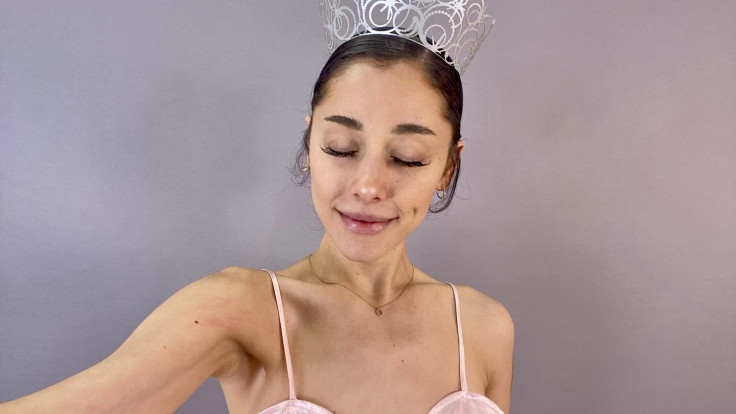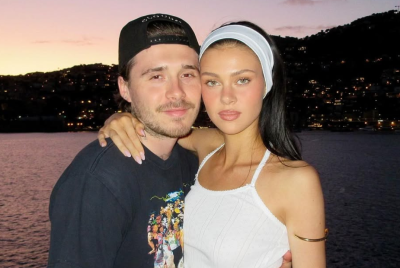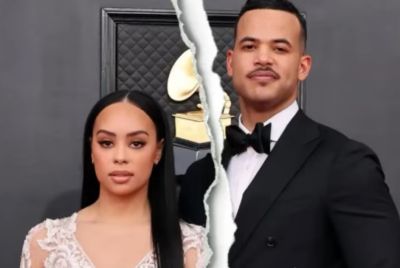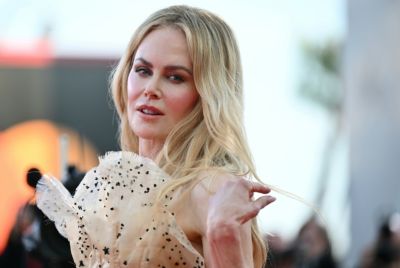Ariana Grande Reportedly Using COVID As Excuse to Cover 'Eating Disease'
Ariana Grande's COVID excuse: Unpacking the 'eating disease' gossip amidst Wicked promotions

The buzz surrounding Ariana Grande's recent health announcement is eclipsing the promotion of her long-awaited film, the adaptation of the musical Wicked.
While a positive COVID-19 test has been cited as the official reason for her abrupt withdrawal from high-profile promotional engagements—a fact confirmed by outlets such as USA Today in November 2025—a torrent of social media speculation is now suggesting a far more complicated narrative.
Whispers, originating from secretive TikTok 'blind' accounts and echoed across celebrity blogs, allege that the diagnosis is not a setback, but a convenient shield. According to these unsubstantiated reports, the COVID-19 illness is reportedly being used as a calculated excuse to dodge the spotlight and cover up a far more sensitive and personal struggle: a long-standing, heavily scrutinised 'Eating Disease'.
The Resurgence of the 'Eating Disease' Speculation
Ariana Grande has been under intense public scrutiny regarding her body for the entirety of her career, from her early days on Nickelodeon's Victorious to her global pop superstardom. However, the discussion intensified dramatically over the last few years as her physical appearance noticeably changed, sparking immediate and often cruel online commentary.
This is not the first time the global icon has addressed public concern over her health. In an emotional video posted in 2023, Grande proactively spoke out against body shaming, urging her fans and the wider public to practise kindness and consideration.
At the time, she stated that the version of her body people compared to was her 'unhealthiest state', asking viewers to consider that 'there are many different kinds of healthy and beautiful'.
Her appeal was a poignant reminder that speculating on someone's appearance—especially changes in weight—can be deeply insensitive and entirely misses the complexities of their personal life.
The current gossip centres on the idea that her recent weight loss has reached a point where it has become increasingly difficult to conceal from the relentless paparazzi lenses and red carpet cameras.
Despite the heartfelt plea for privacy she issued previously, the voracious appetite of online 'gossip hunters' means that even a medically confirmed illness like COVID-19 is now being framed as a deceptive strategy to manage public relations around the alleged 'Eating Disease'.
This entire situation highlights the extreme difficulty modern celebrities face. Every change, every public appearance, and every cancellation is analysed through a magnifying glass, often leading to damaging conclusions drawn without a factual basis.
Nutritional experts, such as those writing on sites like Nutrition by Kristin, often weigh in on the general topic of celebrity health speculation, repeatedly stressing the importance of discretion and noting that any potential 'Eating Disease' is a serious medical condition that cannot be diagnosed or confirmed by mere observation.
The pressure Grande faces, balancing the physical demands of filming a major motion picture like Wicked with constant surveillance, only adds fuel to the speculative fire that she might be struggling with a major health issue.
@celebritea.blinds Ariana Grande Using COVID As EXCUSE To Cover DISEASE | Source: @entylawyer crazydaysandnights.net, agcwebpages.com | Everything in this video is alleged. #arianagrande #arianagrandenews #arianagrandewicked #arianagrandeglinda #TikTokRundownContest ♬ original sound - celebritea.blinds
COVID-19 Interruption and Rumours of an 'Eating Disease' Cover-Up
The timing of the COVID-19 diagnosis, which occurred as the promotional cycle for Wicked was gearing up, has been seized upon by rumour mongers as suspiciously convenient. The film is one of the most anticipated releases of the decade, and its press tour demands a high-profile, highly visible presence from its lead stars, Grande and Cynthia Erivo.
The positive test forced Grande to cancel several significant press appearances, including planned television interviews and red carpet photo calls. While this is a standard and necessary public health protocol, the 'blind' reports are suggesting that these cancellations were welcomed internally by her team.
The narrative proposed by these sources is that the COVID diagnosis provided a medically legitimate and publicly acceptable reason for Grande to avoid the intense photographic scrutiny that accompanies major film premieres—scrutiny that could have potentially amplified the chatter about her 'Eating Disease' to an uncontrollable level.
It must be remembered that these are unverified rumours circulating primarily on social media platforms, but they reveal the toxic nature of contemporary celebrity culture.
The current dialogue surrounding Ariana Grande is less about legitimate concern for her health and more about a persistent, invasive desire to uncover and sensationalise a private struggle, turning a serious potential health issue into blockbuster tabloid fodder.
Ultimately, while her positive COVID test is a fact, the true status of her health and the alleged 'Eating Disease' remain known only to her and her closest confidants.
© Copyright IBTimes 2025. All rights reserved.





















